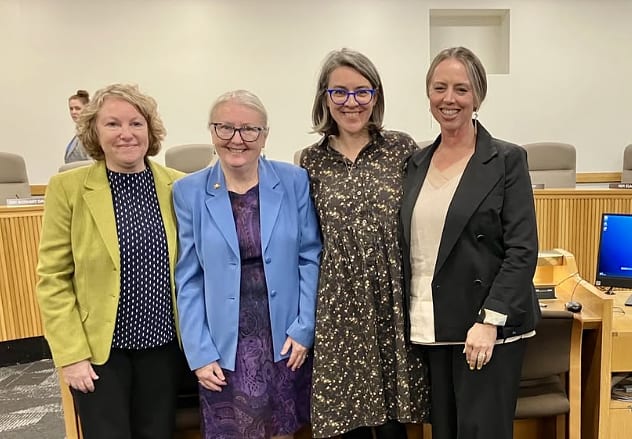Measuring the impacts of an Accountable Communities for Health Initiative
- Across the U.S., Accountable Communities of Health (ACHs) are pioneering community-driven approaches to advancing health and health equity.
- Providence CORE’s evaluation of an ACH initiative in California provides insights into ACHs' potential benefits and the opportunities ahead.
- CORE’s research identified several ways ACHs made a tangible difference, elevated community needs, and built stronger cross-sector partnerships.
The California Accountable Communities for Health Initiative (CACHI) seeks to modernize California’s health system through an innovative approach recognizing that doctors and hospitals alone cannot improve community health outcomes. CACHI’s model relies on establishing local organizations called Accountable Communities for Health (ACHs), which serve specific geographic areas and prioritize key community issues like cardiovascular disease, nutrition, and community violence and trauma. In total, 13 ACHs were created in California to work with community stakeholders to assess local needs, develop interventions, attract resources, and help coordinate cross-sector partnerships that advance health and equity.
Since 2017, the Providence Center for Outcomes Research and Education (CORE) has helped CACHI and other evaluation partners study this innovative model. As more communities look to ACH models, CORE’s research offers insights that can help guide other ACHs and their efforts.
Partnering to evaluate CACHI’s impacts
From 2017 to 2022, CORE collaborated with other researchers on a learning evaluation to document progress and challenges for the ACH sites and the overall initiative, as well as the ACHs’ contributions toward system change and improved community outcomes. Data was collected through surveys, interviews with ACH participants and other stakeholders, and a review of documents and other materials.
Key findings from CORE’s evaluation of CACHI
CORE's evaluation indicated that ACHs are building trust and making a tangible difference in the communities they serve. We found that:
- ACHs are creating resilient and adaptive cross-sector connections, with 70% of ACH partners reporting that the ACH had strengthened organizations' ability to work together and 62% reporting the development of new or deepened connections through their ACH involvement.
- ACHs supported tangible accomplishments in developing or expanding clinical-community linkages, such as creating Community Health Worker networks and establishing screening, referrals, and service coordination focused on Adverse Childhood Experiences.
- In addition to providing infrastructure for collaboration, CACHI ACHs are also working towards advancing equity and elevating community members' voices through various outreach and engagement efforts.
- ACH backbone agencies played a critical role in supporting sustainable cross-sector organizational relationships and enabling the accomplishments and added value documented by our researchers.
“To accomplish more, we need to band together as often as opportunity arises. The ACH process reminded/taught us of that factor. Sharing the work, sharing the governance, sharing the impact was all significant to raising awareness of the ACH model and the ability to lift heavier loads collectively.” - CACHI stakeholder
“Building a sustainable trust between the partners, who ordinarily work in silos, has allowed for the cross-sector approach to work.” - CACHI stakeholder
Findings about what value ACHs can bring and the role they can play in their communities have already helped make a case for further investment in the model. Community Partners will release a request for proposals in early 2023 to expand to 25 sites, further increasing the reach and impact of this vital work.
Furthermore, for the more than 150 ACH sites currently tracked by the Funders Forum for Accountable Health, this work offers a variety of useful insights and evidence to use in strengthening these innovative approaches to improving community health.
Related resources:
- Issue brief: Governing Cross-Sector Collaboratives
- Blog post: CORE insights: Key ingredients for measuring cross-sector impact
- Report: ACHs' Critical Role in COVID-19 Response: Findings from the First 90 Days
- Website: Learn more about CACHI




